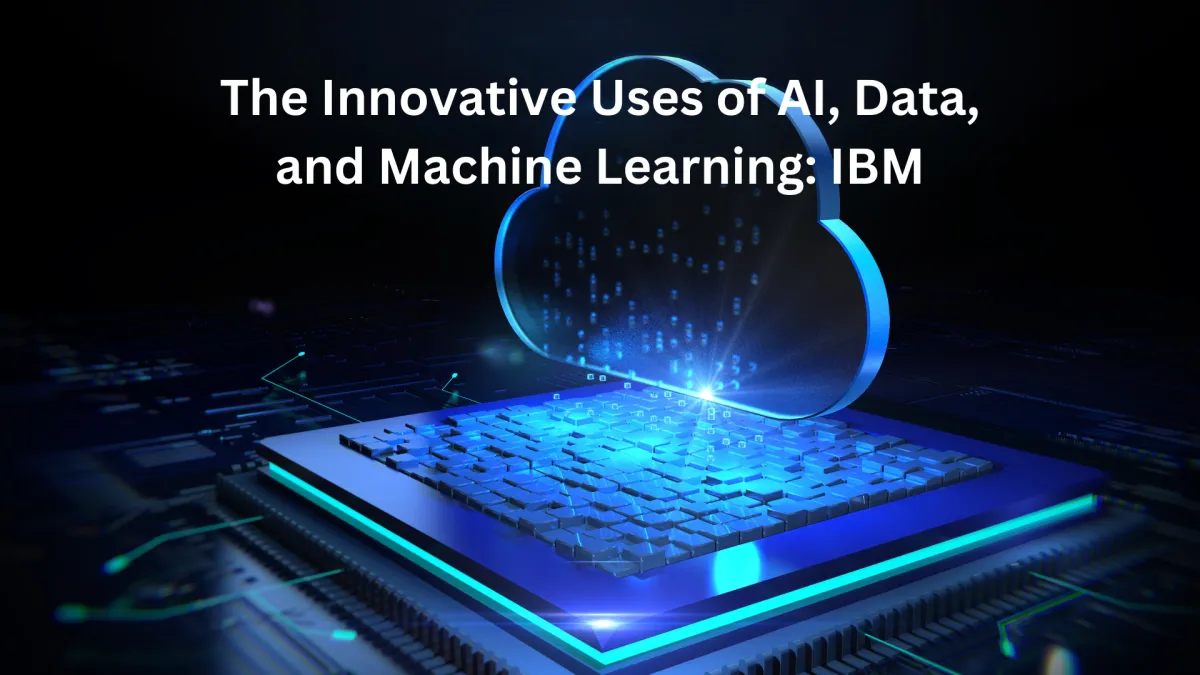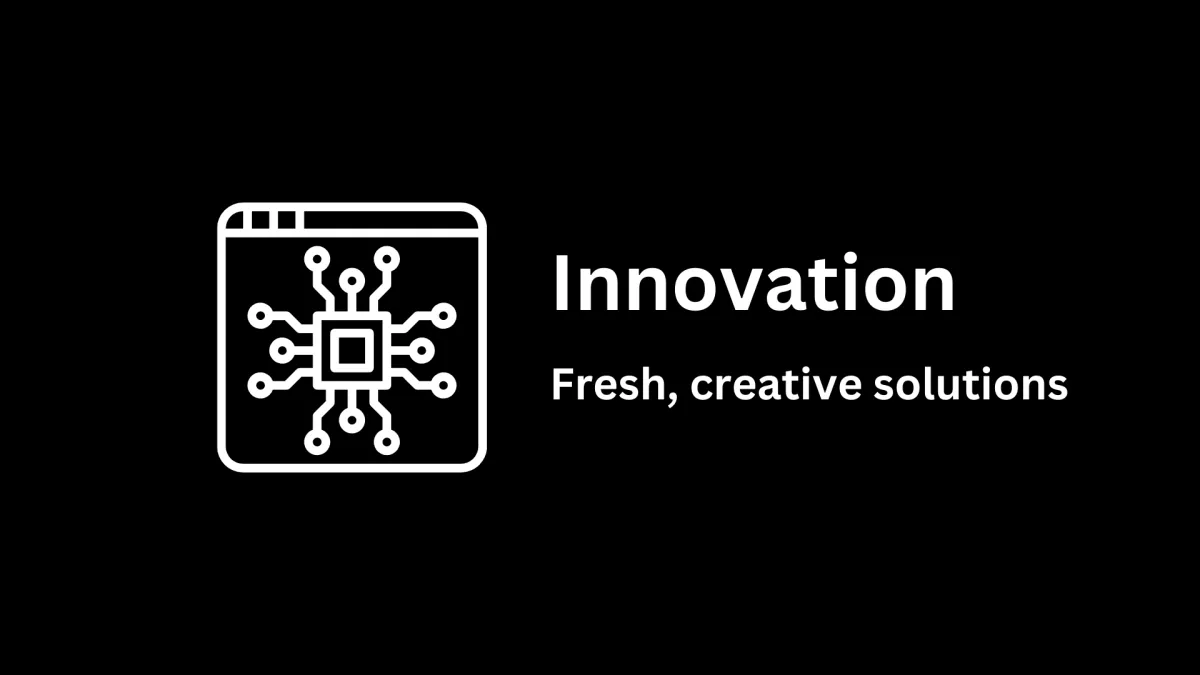Marketing Digiverse News
MaketingDigiverse


The Innovative Uses of AI, Data, and Machine Learning in IBM's Business and Marketing in 2024
“Digital Transformation is a fundamental reality for businesses today.” – Warren Buffett
IBM, a global leader in technology and business solutions, continues to pioneer the use of artificial intelligence (AI), data analytics, and machine learning (ML) in 2024, reshaping both its internal operations and external client-facing services. Through these technologies, IBM enhances productivity, improves decision-making, drives customer engagement, and provides groundbreaking solutions for enterprises worldwide. In this article, we will explore IBM's innovative applications of AI, data, and machine learning in its business and marketing strategies, offering detailed examples and insights.
1. AI in IBM’s Product Development and Operations
IBM’s use of AI in product development exemplifies how the company is leveraging technology to refine processes and create new offerings. AI, combined with cloud computing, is central to IBM’s operations, particularly in IBM Watson, which has been a flagship AI system for over a decade. In 2024, IBM Watson has evolved into a more specialized and versatile tool, employing advanced natural language processing (NLP), neural networks, and deep learning to power industries ranging from healthcare to finance.
For instance, IBM Watson is now integrated into supply chain management, helping businesses predict disruptions, optimize inventory levels, and streamline logistics. By analyzing vast datasets, Watson detects patterns that indicate potential bottlenecks, such as weather events or geopolitical instability, allowing businesses to act preemptively. This is a significant improvement over traditional supply chain management systems, which are often reactive rather than proactive.
Moreover, IBM employs AI for predictive maintenance across industries. Using real-time data from IoT (Internet of Things) sensors, AI models predict when machines or systems are likely to fail, allowing companies to perform maintenance before a costly breakdown occurs. This reduces downtime and enhances efficiency, making operations more cost-effective and sustainable.
Example: AI-Driven Healthcare Solutions
In healthcare, IBM’s Watson Health has advanced the use of AI to interpret medical data and provide actionable insights for clinicians. AI algorithms now assist in diagnosing diseases, analyzing medical images, and suggesting personalized treatment plans based on patient histories and genetic information. For example, Watson’s machine learning models can detect cancerous cells in radiology scans more accurately and faster than human doctors, leading to earlier detection and treatment of life-threatening conditions.
2. Data and AI in IBM’s Marketing Strategies
IBM's marketing in 2024 revolves around its ability to harness the power of data analytics and AI to create highly personalized, data-driven campaigns. By collecting and analyzing vast amounts of customer data, IBM can segment its audience and target them with tailored marketing messages that speak directly to their needs and interests.
One of IBM's most innovative marketing tools is AI-driven customer segmentation. Machine learning models analyze behavioral data from IBM’s digital platforms, including website visits, social media engagement, and product purchase history. These models then segment customers into various cohorts based on their preferences, engagement levels, and buying patterns. This allows IBM to deliver hyper-personalized content, optimizing the timing and relevance of its marketing efforts.
For example, IBM uses predictive analytics to anticipate customer needs and deliver timely recommendations. AI models predict when customers are most likely to require upgrades, additional services, or new products, and IBM tailors its marketing messages accordingly. These predictive capabilities have led to higher conversion rates, improved customer satisfaction, and increased loyalty.
Example: AI-Powered Dynamic Content Delivery
A prime example of IBM’s innovative use of AI in marketing is its dynamic content personalization technology. By leveraging machine learning algorithms, IBM can automatically adjust website content in real-time based on user behavior. For instance, if a user is browsing cloud computing solutions on IBM’s website, the AI system will tailor the website's content to show relevant case studies, pricing options, and product features aligned with the user’s interests. This dynamic experience enhances customer engagement and keeps potential clients more invested in the journey.
Moreover, IBM’s AI models analyze user interactions with marketing emails, social media posts, and online ads to optimize future campaigns. For instance, AI tools assess which email subject lines and formats perform best for specific customer segments, allowing marketers to refine their outreach strategies. IBM’s advanced AI-driven analytics tools, such as IBM Watson Marketing Insights, play a critical role in these efforts, providing detailed customer profiles and helping marketers make data-backed decisions.
3. AI and Machine Learning for Predictive Customer Insights
In 2024, IBM uses AI to generate predictive insights into customer behavior and preferences, shaping the company’s marketing and business development strategies. Machine learning models continuously analyze vast datasets, from social media interactions to transactional data, to predict customer trends and sentiment. IBM applies these insights to develop new products, refine existing services, and stay ahead of market demands.
Example: Sentiment Analysis for Market Responsiveness
IBM leverages sentiment analysis, a machine learning technique that evaluates the tone and emotion behind customer feedback. By analyzing data from sources like social media comments, reviews, and customer service interactions, IBM can quickly gauge public opinion about its products and services. This allows IBM to be highly responsive to market changes, adjusting its messaging or product offerings based on real-time customer sentiment. For example, if sentiment analysis reveals dissatisfaction with a particular software update, IBM can address the issue before it escalates, demonstrating customer-centric responsiveness.
Additionally, sentiment analysis provides valuable insights for competitive analysis. IBM's AI tools analyze competitor data, enabling the company to understand industry trends, anticipate competitors’ moves, and refine its positioning. By staying informed about competitors' strengths and weaknesses, IBM can proactively adjust its marketing strategies to highlight its unique advantages.
4. The Future of AI in IBM’s Client Solutions
IBM’s focus on AI, data, and machine learning in 2024 extends beyond internal marketing and operations. The company provides cutting-edge AI-driven solutions to clients across various industries. IBM Cloud Pak for Data, for example, allows companies to integrate AI into their data pipelines, enabling them to access, analyze, and utilize their data in more meaningful ways.
Example: AI in Financial Services
In the financial services sector, IBM is helping institutions leverage AI for fraud detection and risk management. Machine learning models analyze transactional data in real-time, identifying unusual patterns that may indicate fraudulent activity. These AI systems can detect and respond to fraud more quickly than traditional methods, helping financial institutions protect both themselves and their customers. Moreover, AI models assess financial risk, helping companies make more informed decisions when offering loans or investments, minimizing exposure to bad debt.
Example: AI-Driven Manufacturing
In manufacturing, IBM’s AI tools help companies achieve greater efficiencies through process automation and quality control. Machine learning models analyze production data to identify bottlenecks and suggest process improvements. Additionally, AI-driven visual inspection systems use computer vision to detect defects on the production line with unprecedented accuracy, reducing waste and ensuring higher quality products.
5. Ethical Considerations and the Future of AI at IBM
As IBM continues to push the boundaries of AI and machine learning, the company remains committed to ethical practices. In 2024, IBM has intensified its focus on responsible AI, ensuring that its AI models are transparent, unbiased, and fair. IBM’s AI Ethics Board plays a critical role in setting guidelines and frameworks for the ethical development and deployment of AI technologies, ensuring compliance with both internal standards and global regulations.
IBM’s commitment to AI ethics also extends to its marketing practices. The company prioritizes data privacy and customer consent when leveraging AI and machine learning for personalized marketing. By adhering to stringent data protection standards, IBM ensures that its customers’ information is handled responsibly, fostering trust and loyalty.
Conclusion
In 2024, IBM’s use of AI, data, and machine learning is transforming both its internal operations and the solutions it offers to clients. From predictive maintenance and dynamic content personalization to fraud detection and sentiment analysis, IBM continues to harness the power of these technologies to stay at the forefront of innovation. As the company moves forward, it remains committed to ethical practices, ensuring that its AI-driven strategies benefit not only its business but also its customers and society as a whole.
For businesses looking to integrate similar technologies, IBM’s solutions, such as Watson AI, Cloud Pak for Data, and Watson Marketing Insights, offer a wealth of resources and tools to drive digital transformation. As AI, data, and machine learning continue to evolve, IBM stands as a model for how to leverage these technologies to build a smarter, more efficient future.
Resources
IBM Watson: https://www.ibm.com/watson
Cloud Pak for Data: https://www.ibm.com/cloud/cloud-pak-for-data
IBM Watson Marketing Insights: https://www.ibm.com/products/watson-marketing-insights
IBM AI Ethics Guidelines: https://www.ibm.com/blogs/policy/ai-ethics/
We Are Happy to Help
Unlock the full potential of your AI business and marketing efforts with MarketingDigiverse™! Schedule a complimentary 30-minute Strategy Session today and discover how to optimize your campaigns for maximum impact. Our expert team will analyze your current strategies, identify key opportunities for growth, and provide actionable insights to help you drive measurable results. Whether you're looking to increase conversions, boost brand awareness, or enhance customer engagement, this personalized session is designed to get you on the path to success. Don't miss this opportunity to elevate your marketing—schedule your free AI strategy session and receive a complimentary copy of the new eBook, "Driving Profitability: How KPIs Turn Data into Dollars". Or Email [email protected], enter "KPI eBook" in the Subject Line, to receive a copy in your inbox.
#kpi #marketingkpi #businessperformance #businessmanagement Follow MarketingDigiverse

Other Highly Regarded Resources





Artificial Intelligence:
+ Boosts Efficiency through Automation: Streamlines operations, reduces costs, and enhances productivity by automating routine tasks.
+ Improves Customer Experience: Delivers personalized, seamless interactions that increase customer satisfaction and loyalty.
+ Enables Data-Driven Decisions: Provides actionable insights through real-time data analytics, driving smarter business strategies.



Contact Us
MaketingDigiverse
2201 N Lakewood Blvd, D108, Long Beach CA 90815
(626) 637-7603
Connect
© 2012-2025 MarketingDigiverseTM | Affiliate of SoCal Digital Studio |
All Rights Reserved
